.jpg)
Ka$h Wired
Financial Literacy for Ages 14-18: Managing Your Personal Finances, Achieving a High Quality of Life, and Taking Responsibility
Being financially literate makes it possible for an individual to live a quality life. It's all about maximizing your income and savings and not putting yourself in a position where you stress out about money.
People who don't know how to manage their personal finances usually spend more than they earn. This leads to increasing debts as life progresses and, of course, increased anxiety and depression stemming from financial worries.
Key Money Basics Ages 14-18
Learning money management in high school will allow you to live independently as you enter the workforce or college and spend and save your money wisely throughout your entire life. Here are some financial literacy skills important for high school students.
 Making wise decisions about money. Whether you want to move or buy a house one day, you need to know how to go about making those decisions. Money plays a crucial role when choosing what to do in such situations and many others.
Making wise decisions about money. Whether you want to move or buy a house one day, you need to know how to go about making those decisions. Money plays a crucial role when choosing what to do in such situations and many others. - Minimizing college costs. More students are going to college after high school, but college tuition and college debt keep increasing. Knowing how to manage your money and make smart decisions about college costs will minimize your cost to attend.
- Maximizing income. You don't need to pursue high-profile careers to enjoy financial freedom, but you need to understand how to maximize your income when you embark on your career path.
- Spending and budgeting. When young adults start earning money for the first time, they have the tendency to lose track of where their money goes, which causes them to be in the "red." Budgeting is a financial plan that allows individuals to know how much they are earning and spending so there is something leftover after your paycheck. Try this easy budgeting tool.
- Saving and investing. It's important to form the habit of saving early on. In high school you should know how to develop a financial plan that includes setting your financial goals, identifying the steps to achieve them, and timeframe to reach them.
- Banking. By high school you already know that banks offer various financial services, but you probably don't know how to use all of them to your benefit. High school students should know how to open a checking account, write checks, understand the responsibility of keeping a bank account, make a deposit, understand transaction fees and how to minimize them, and understand bank interest rates.
- Using credit and credit cards wisely. In high school you are preparing yourself for responsible use of consumer credit, like credit cards. It's important to know the advantages and disadvantages of using credit. Also, know your rights and responsibilities when using credit and credit cards and how to build a solid credit history.
- Applying for loans and acquiring assets. A major part of money management is knowing when to borrow money and why. Acquiring valuable assets, like a car or a house, is a good reason for applying for a loan, but it calls for a plan to repay the loan.
Comic Books That Boost Your Financial Literacy

|
The Avengers: Saving the Day
Your favorite comic book heroes Black Widow, Hulk, Iron Man, Spider-Man, and Thor will teach you how to be money smart in the Avengers: Saving The Day (view online). This comic book, a collaboration between Visa Inc. and Marvel Comics, includes budgeting worksheets, useful financial terms, and information about banking and insurance.
Teacher's Guide. Will help you guide your class in a lesson about personal finance.
Fantastic Finance Terms. Help students learn new finance words to help them become financial Super Heroes.
Hulk Budget Blaster. This printable worksheet allows kids to practice tracking their own spending and creating their own personal budgets.
|
.jpg)
|
The Story of the Federal Reserve System
The Federal Reserve Bank of New York came out with this handy illustrated guide to the bank’s history in The Story of the Federal Reserve System. The book covers financial terms and topics such as the meaning of credit and how money works. In addition, explanations of more complicated topics such the anatomy of an economic recession, inflation, and interest rates are outlined in simple terms. If you’re interested in reading more books produced by The Fed, you can check out more of their educational resources at Federal Reserve Education.
High School Lesson Plan.
|

|
Black Panther and Shuri: Investing in each other!
Follow along with Black Panther and the Avengers as they fend off waves of A.i.M. Soldiers at the International Technology Conference, in this educational comic. Learn how King T’Challa and his sister Shuri use budgeting and charitable giving to build a strong financial foundation. This action-packed comic comes with activity worksheets and puzzles to use with your students.
Be a Charity Super Hero on a Budget. Use this worksheet to learn how you can be a charitable super hero with a few extra dollars and some spare time.
Super Crossword Puzzle. This printable worksheet allows you to use clues to complete the crossword puzzle.
Super Word Search. Find and circle the vocabulary words from the Black Panther comic.
|

|
Guardians of the Galaxy
Join the Guardians of the Galaxy in this exciting new comic about the importance of saving money and teaching kids about wants and needs. The collector's item financial literacy comic called Rocket's Powerful Plan has a fast-paced plot where the characters learn the importance of saving and managing personal finances while defeating the evil Collector and Robo-Pests. The educational comic also features a mini-game activity worksheet, finance terms and more.
Teacher's Guide. This free teacher's guide will help you guide your class in a lesson about personal finance.
Super Hero Saving Smash Worksheet. This printable worksheet allows students to test their knowledge about money and becoming a Super Hero saver.
Fantastic Finance Terms. Help students learn new finance words to help them become financial Super Heroes.
|
Games
How money smart are you. Play and learn about everyday financial topics. Have some fun!
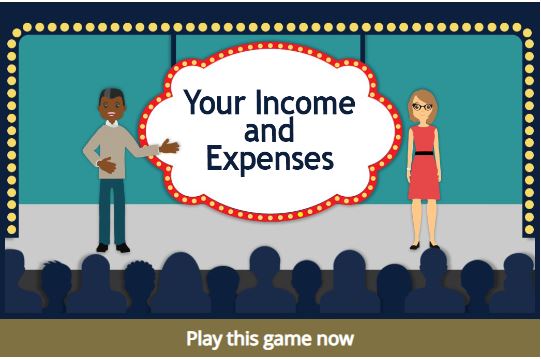
|
Your Income and Expenses
This game and its resources can help you track and understand your income (money coming in) and expenses (money going out).
- Round 1: Income
- Round 2: Pay Statements
- Round 3: Expenses
Source: FDIC Money Smart
|
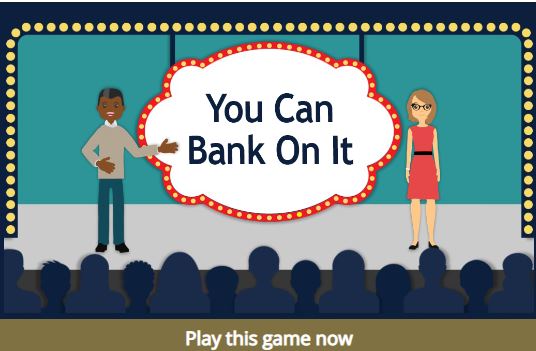
|
You Can Bank On It
This game and its resources cover banking services and can help you build a positive relationship with the bank.
- Round 1: Financial Products, Services, and Providers
- Round 2: Opening an Account
- Round 3: Managing an Account
- Round 4: Prepaid Cards
Source: FDIC Money Smart
|
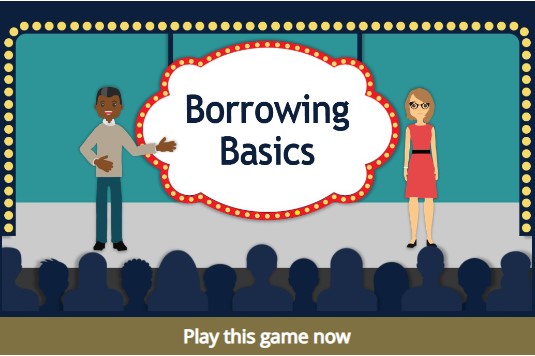
|
Borrowing Basics
This game and its resources can help you understand options for borrowing money and what they cost.
- Round 1: Ways to Borrow Money
- Round 2: Get Ready to Apply for a Loan
Source: FDIC Money Smart
|
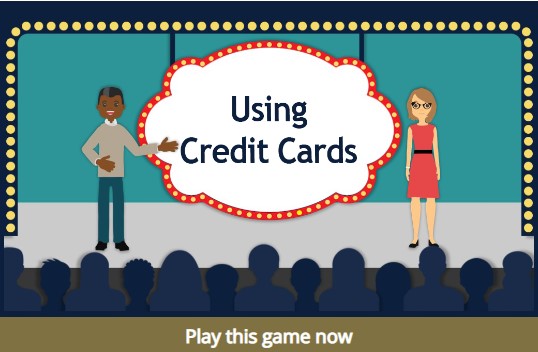
|
Using Credit Cards
This game and its resources cover banking services and can help you build a positive relationship with the bank.
- Round 1: Introduction to Credit Cards
- Round 2: Credit Card Rates and Fees
- Round 3: Choosing a Credit Card
- Round 4: Reading a Credit Card Statement
- Round 5: Managing a Credit Card
Source: FDIC Money Smart
|
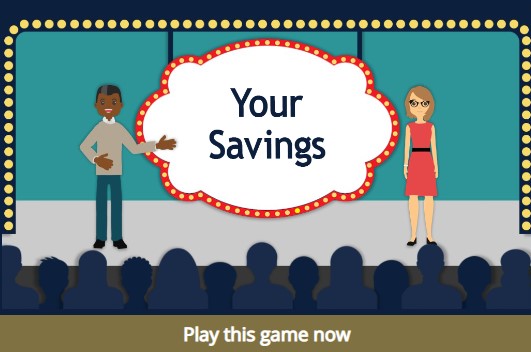
|
Your Savings
This game and its resources can help you save money for your goals, large purchases, and unexpected expenses.
- Round 1: What is Saving?
- Round 2: Where to Build Your Savings
- Round 3: Benefits of a Federally Insured Savings Account
- Round 4: Saving for Unexpected Expenses
- Round 5: Saving for Your Goals
Source: FDIC Money Smart
|
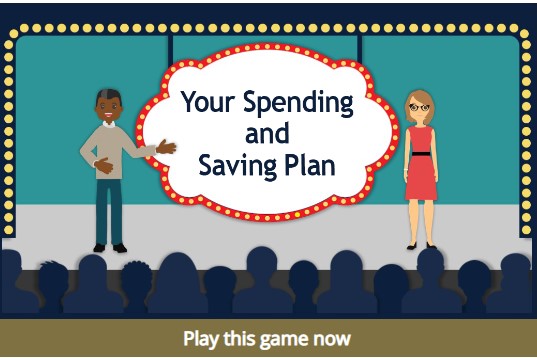
|
Your Spending and Saving Plan
This game and its resources can help you use information about your income and expenses to develop a spending and saving plan.
- Round 1: Creating a Spending and Saving Plan
- Round 2: Making Adjustments
- Round 3: Prioritizing Bills
Source: FDIC Money Smart
|

|
Payback
Payback nudges students to think about how to succeed in college without taking on excessive student debt. Tony Montgomery, a teacher in New York City, says, “Payback teaches students that it is very important to have a healthy balance between academics, work, and social activities while continuing to manage your debt.”
Start Game
|

|
Spent
Spent challenges players to survive the struggle of low-income living. Developed by McKinney to raise money for Urban Ministries of Durham, the game has become a hit in financial literacy classrooms. “Spent allows students to truly understand some of the incredibly hard decisions families, living paycheck to paycheck, have to make on a daily basis,” says Courtney Poquette, a business educator from Winooski, Vermont.
Start Game
|

|
Financial Football
These two fast-paced, sports-themed, interactive games engage students in quiz bowl–style questions to advance players up the field. Both Visa-created games have been recently updated with new questions and graphics and include various levels of difficulty and game lengths to make it easier for teachers to differentiate in the classroom. Players can play against the computer or each other.
Start Game
|

|
The Uber Games
In this game, students play the role of a full-time Uber driver—with two kids—who is trying to pay the mortgage. The interactive game, created by the Financial Times, challenges students to face life circumstances of those in the gig economy. Lois Stoll, a veteran Family and Consumer Science teacher from a rural school in Ohio, says, “Seems so easy, right? Just drive a car and earn money in the gig economy! Wait until you try to make the mortgage payment driving an Uber car for a week. Just not as easy as you think!"
Start Game
|
Calculators
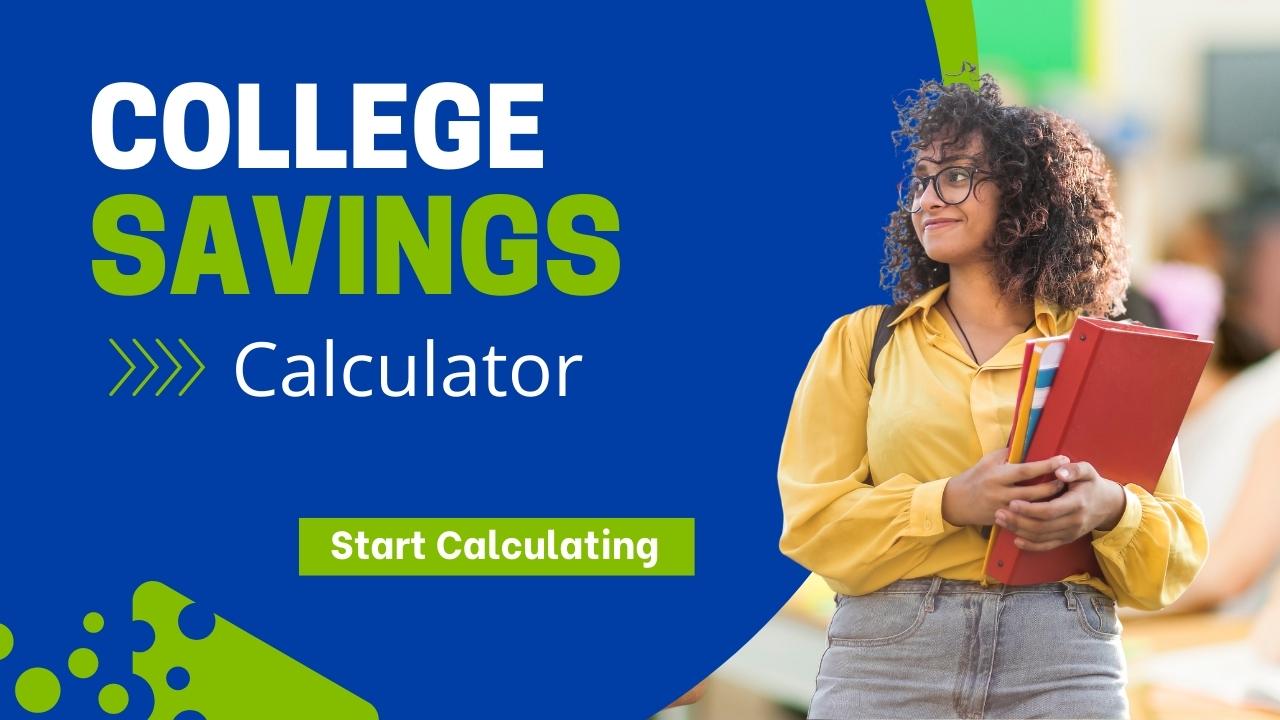
|
College Savings Calculator
Saving for your college education requires a long-term plan. The earlier you start your plan the better. Using this calculator to help develop or fine-tune your education savings plan.
(Source: DoD's Office of Financial Readiness)
|
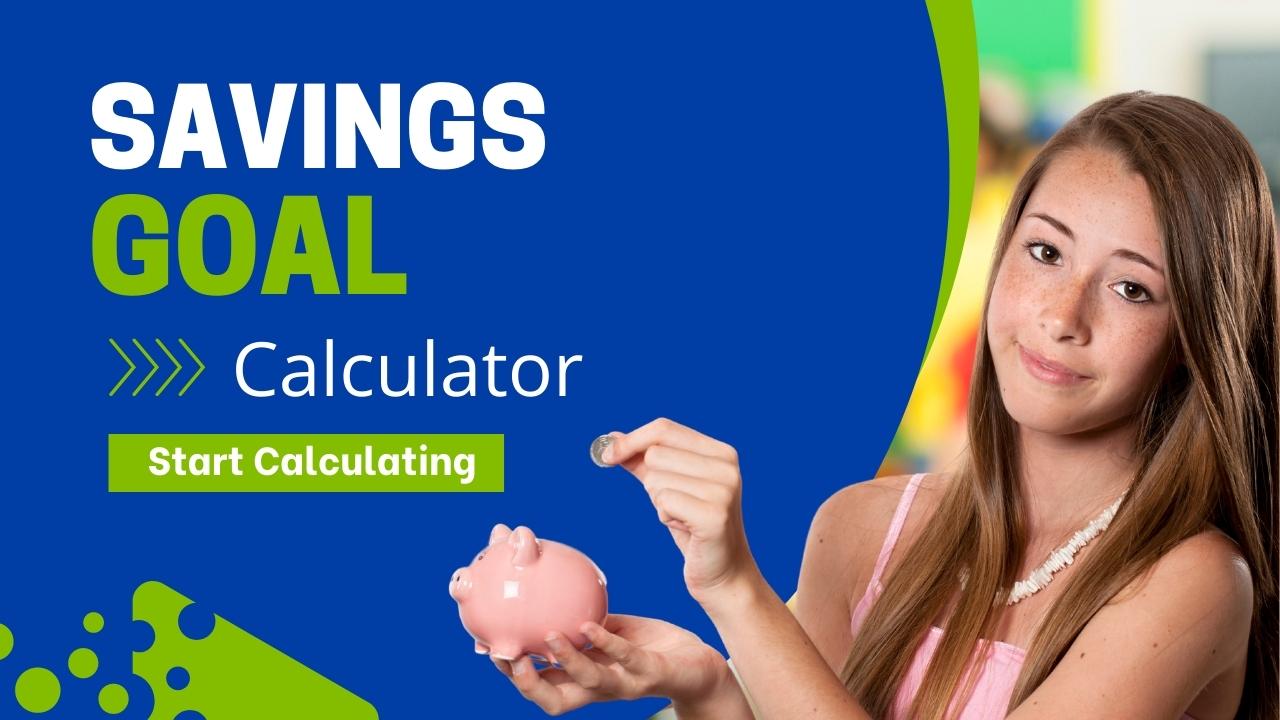
|
Savings Goal Calculator
Calculate how much money you need to contribute each month to reach a specific savings goal.
(Source: Investor.gov)
|

|
Compound Interest Calculator
Determine how much your money can grow using the power of compound interest.
(Source: Investor.com)
|